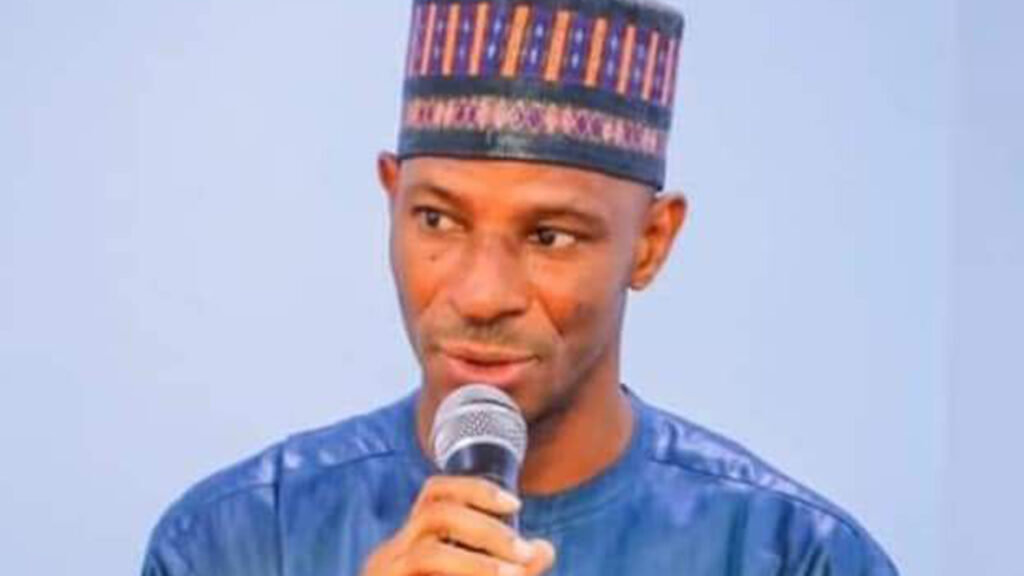
Plan by the Federal Government to borrow N620 billion pension loans is not new; the idea was mooted about a year ago but it appears to have suffered from absence of effective implementation due most probably to credibility stigma of government. That also might have informed government’s caution in bringing the current attempt up not as a direct proposal but as a scheme to which pension administrators can stamp their willingness and authority to participate in.
Like the previous attempts, this current plan faces again a huge credibility problem for government, given that its antecedents are not supportive of people’s trust, particularly pensioners whose livelihood depends on regular payment of their pension. Moreover, the alarmingly high level of loans hanging over government makes it imprudent for government to court more loans because of the difficulty that will likely ensue in paying back. Importantly, it is imperative of pension funds administrators, who in this instance are being given the option to accept or reject government’s bid, to exercise due care and diligence before acceding; else they jeopardize the welfare of pensioners.
According to reports, the Federal Government is planning to source $1.5 billion (N620 billion) loan from pension funds to support its proposed N7.73 trillion investment in transport infrastructure over the next five years. Specifically, the government is seeking to obtain the facility to finance transport sector projects between 2021 and 2025, hoping that the over N13 trillion pension fund will grow at an average rate of 15 per cent per annum during the period.
These were contained in the Federal Government’s ‘National Development Plan 2021-2025: Volume I,’ which was launched recently. Government also revealed in the NDP document that the N7.73 trillion infrastructure spending would be sourced from the capital market, the Presidential Infrastructure Development Fund portfolio, pension funds, among others. The government, however, said the proposed N620 billion facility would be based on the willingness of pension funds administrators to invest in the transportation sector.
The NDP document read in part: “An additional $1.5 billion (N620 billion) could be sourced from pension funds, assuming Nigeria’s pension fund assets valued at over $31.3 billion in 2019 grows at an average rate of 15 per cent per annum over the five years and pensions funds administrators opt to invest in infrastructure funds and infrastructure bonds up to the thresholds they are allowed to do.”
Ordinarily, there should not be anything wrong in borrowing pension funds to execute public-spirited projects, especially on critical infrastructure. After all, it can be argued that the funds are in existence, and should be used for a purpose, provided it is a productive purpose. In developed countries, such practice is not strange; indeed, pension funds have been known to be used or invested in real estate, banks and the insurance industry. Government, including the Nigerian government is deemed financially strong enough to safely pay back the amounts borrowed without unduly rocking the pension boat.
The problem with the Nigerian government is the uncertainty or opaqueness that will most likely follow the disbursement of the borrowed fund. Going by antecedents, it is usual for the funds to disappear without any trace of the projects they were supposedly expended upon. If this happens again, not only will repayment become difficult, the future and welfare of pensioners may be compromised. Surely there is need for serious consideration before subjecting pensioners to such a risky venture. These are people who have spent the most useful period of their lives on service; and it is only proper that they are allowed to enjoy the fruits of their labour, no matter how meagre this is.
It is therefore not surprising that criticism has widely greeted the government proposal. Senior civil servants and pensioners have kicked against the plan. The workers, under the aegis of the Association of Senior Civil Servants of Nigeria, asked the government not to contemplate the idea, describing the proposal as insensitive. The ASCSN President, Tommy Okon, said, “Some pensioners are even complaining about the delay in certain payments and you are talking of borrowing from the pension fund.” The union also berated the Federal Government on its borrowing spree, noting that this has put the nation under pressure.
Similarly, pensioners under the aegis of the Nigeria Union of Pensioners (NUP) stressed that the government needed to be careful about borrowing from the pension funds. Reacting to the plan, the NUP Information Officer, Mr. Bunmi Ogunkolade, noted that retirees might become stranded if the government failed to repay the loan. However, analysts believe that since the pension law allows PFAs to invest in Federal Government bonds, workers and pension unions may not have any legal ground to stop the government or pension funds administration from going ahead with the proposal.
Certainly, the government is under pressure from its N40 trillion debt that has made President Muhammadu Buhari to have borrowed more than all former presidents combined. Deficit financing of the 2022 budget is N6.25 trillion, which is 3.4 per cent of Nigeria’s GDP and more than the three per cent allowed by the Fiscal Responsibility Act. As the country borrows more, debt servicing swallows a larger chunk of her resources, compounding the social welfare challenges of Nigerians. Worse still both federal and state governments promise more taxes, including taxation of commuters in Lagos and removal of oil subsidy by Buhari. But government’s failure to stamp out corruption in the public sphere remains a negative index that will haunt potentially lofty schemes such as borrowing from pension funds to execute vital infrastructure in the country.
A probable solution to government’s incessant borrowing is of course to scale down government spending. In this age of paperless administration, half of the civil service can be successfully retired without any harm befalling the system. The ministries can be pruned down drastically, as many are simply duplicating the functions of others and some agencies.
Government should budget for the needs of Nigerians, not their wants. The Nigerian President does not need a fleet of planes. As host to the poorest people on earth, the Nigerian president can ill afford its present huge fleet of planes. The country should not borrow for mere indulgence. Thus, government should jettison the idea of borrowing from Pension Funds. And Pension Fund Administrators do need to be very circumspect, in view of the circumstances, before granting government’s indulgence else it worsens the already pitiable plight of pensioners.












